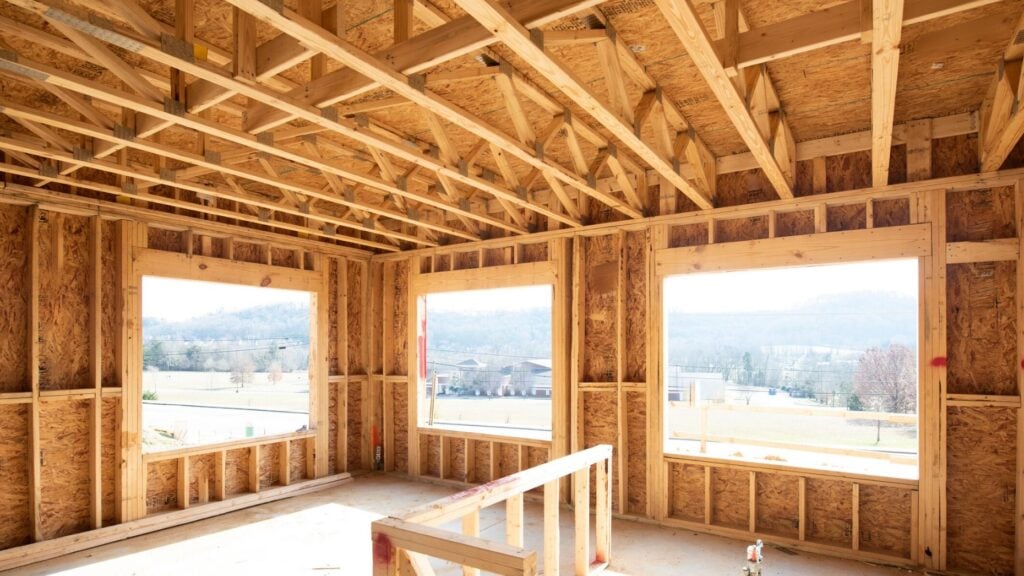Homebuyers may finally be suppressing their appetites for pricy new houses now that mortgage rates are no longer near their historic lows.
Builders in recent weeks have reported a significant drop in interest from buyers seeking new homes in a monthly report by John Burns Real Estate Consulting, according to a summary of the report from the firm’s Director of Research Rick Palacios Jr.
The decline in interest from buyers was having broad-based effects on the market for new homes. Builders in May reported declines in sales, pressure to drop prices, and the return of buyer incentives, Palacios wrote on Twitter.
“As interest rates rise and pricing continues to escalate, there’s no way we can sustain the type of sales rates we are used to,” a builder in Phoenix told the firm, according to Palacios.
One Boston builder told the firm that a release of four new homes in a recent weekend didn’t immediately sell out from buyers on the waiting list — a first for that company in quite some time. They’re also beginning to see a dropoff in buyers wanting a place on their interest list, the builder said.
In Tampa, one builder said the impact is being seen all the way up the sales pipeline as well, with website and phone traffic slowing “dramatically” over the past two months.
“[A] longer-term pause in buyer traffic would cause alarm for our 2023/2024 business plans,” the Tampa builder said.
Traffic was down 25 percent in May compared to the month before for a homebuilder in Columbus, Ohio. A representative for that builder told John Burns Real Estate Consulting they would be surprised if traffic recovered in June.
Another builder in Pennsylvania described the market as “soft,” with inventory on the rise. This builder, located in Harrisburg, missed its projected sales mark for May by 50 percent.
The conditions are leading to more cancellations for some builders. One Los Angeles company reported seeing more people who didn’t lock in mortgage rates earlier and are now backing out because of “payment shock.”
For the buyers not scared away by higher mortgage rates, some of the changes might come as welcome news.
In interviews with Inman, real estate agents said they’re noticing modest shifts in their market that favor buyers. New York City-based Bizzarro Agency broker-owner Matthew Bizzarro said the city “is a tale of two markets,” where buyers can find great deals — if they’re willing to be flexible about location and housing type.
“So a lot of people in New York take off in the summer, and when that happens, we start to see a spike in inventory,” Bizzarro said of New York City, specifically Manhattan. “So the buyers are slowing down and that’s actually causing some price reductions, and it’s allowing buyers right now to actually negotiate some really great deals.”
Echoing feedback from builders in Philadelphia, Austin, Houston, Baltimore and Portland who said they’ve had to “become more competitive” to secure and retain buyers, Bizzarro said NYC developers are offering up buyer and agent incentives like hot cakes.
“We are seeing a lot of developers pay six months to a year of property taxes and throw in amenities like throw in storage units and additional roof deck space,” he said. “We’re also seeing them pay for a lot more concessions, like transfer taxes, and depending on if they’re having a difficult time selling units, some developers will increase the commission paid to the buyer’s agent from let’s say, 2 percent to 4 percent.”
“I had a buyer that got almost $100,000 worth of concessions,” he added. “Although they don’t negotiate on the asking price, buyers are still getting a deal. [Developers] would rather see a higher sales price on the books and give concessions on the back end.”
Although well-financed buyers are having a field day in New York City, RE/MAX Executive Realty broker Bill Gassett and Keller Williams Integrity Lakes managing partner Lasha Raddatz said their markets have yet to offer the same leverage to buyers.
“The craziness has only gotten crazier, but really, my market is just on fire,” said Gassett, who operates in Boston metroplex suburb Hopkinton. “I mean, every house has a bidding war and there hasn’t really been any relaxation of all the crazy things buyers are doing. The only thing that’s changed is that instead of having 10 offers on a house, maybe there’s six or seven.”
That reduction in buyers, he said, comes from first-timers who can’t contend with higher mortgage rates, slim inventory and an influx from buyers in nearby Boston who are still clamoring to live in the suburbs.
“It was always [Boston] was leading the way. The city was always a few notches ahead of the suburbs in terms of values and prices going up and so forth, and there’s kind of been a flip on that,” he said. “I think there’s a little bit more strength in the suburbs than there is there.”
Meanwhile, in Minneapolis, Raddatz said the new construction market is on fire. While her sales pace is 30 percent down from last year as buyers tap out of the market, she said her fiance, who works as a new construction consultant, is having a banner year.
“He’s so busy he hasn’t even had an opportunity to call some of the leads that he met during the spring market because that’s how busy he is,” she said.
Some tailwinds, such as a reduction in lumber costs, have enabled builders to better meet a boon of strong demand even as they grapple with supply-chain problems, labor shortages and sky-high prices for construction materials.
Raddatz said some builders are offering small incentives such as $5,000 off the list price, and are ramping up their production of spec homes to move buyers off their waiting lists.
“A lot of builders are building spec homes now where you don’t get to make all the choices, but you’ll have a brand new, move-in ready house in three months instead of waiting eight to 12 months for a custom build,” she said.
Even as price growth softens and inventory increases, all three agents said a true buyers’ market is a farfetched dream as both existing-home and new-home segments respond to looming uncertainty in rising prices of essential goods and services, and higher interest rates.
“Real estate is local. It’s all about where you are, and what might be happening in one place could be completely different than another,” he said. “But there’s one thing I don’t see changing drastically: I certainly don’t see a buyer’s market coming this year. In any respect.”
Email Daniel Houston



 Are You Interested in West Eleventh Residences Miami?
Are You Interested in West Eleventh Residences Miami? Are You Interested in ONE Park Tower by Turnberry?
Are You Interested in ONE Park Tower by Turnberry? Are You Interested in Diesel Wynwood Condominium?
Are You Interested in Diesel Wynwood Condominium? Are You Interested in Five Park Miami Beach?
Are You Interested in Five Park Miami Beach? Are You Interested in Cipriani Residences Miami?
Are You Interested in Cipriani Residences Miami? Are You Interested in Bentley Residences Miami?
Are You Interested in Bentley Residences Miami? Are You Interested in Baccarat Residences Brickell?
Are You Interested in Baccarat Residences Brickell? Are You Interested in Aria Reserve Miami?
Are You Interested in Aria Reserve Miami? Are You Interested in 888 Brickell Dolce & Gabbana | Miami?
Are You Interested in 888 Brickell Dolce & Gabbana | Miami? Are You Interested in 600 Miami WorldCenter?
Are You Interested in 600 Miami WorldCenter? Are You Interested in HUB MIAMI RESIDENCES?
Are You Interested in HUB MIAMI RESIDENCES? Are You Interested in WALDORF ASTORIA RESIDENCES?
Are You Interested in WALDORF ASTORIA RESIDENCES?